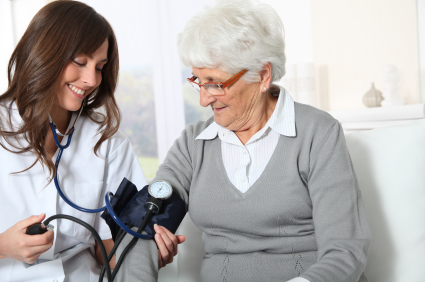Hello!
Evaluating a patient’s condition is regarded as health assessment skills in clinical terms. It is a crucial element for both nurses and physicians and forms the cornerstone of a healthcare provider’s competency as a nurse.
 A nurse’s core work involves interacting with patients, understanding their immediate needs, evaluating their circumstances, and following the treatment plan assigned by the doctor. In this process, a nurse has to document every detail in legible handwriting and easy-to-understand language that forms the reference point for the next shift nurse and doctors. Some regulations and policies make nurse documentation an important aspect of health assessment during patient care for nurses. Even if a nurse has been trained in using proper documentation during patient interaction, it helps to take up a health assessment course online for a better grasp of the details.
A nurse’s core work involves interacting with patients, understanding their immediate needs, evaluating their circumstances, and following the treatment plan assigned by the doctor. In this process, a nurse has to document every detail in legible handwriting and easy-to-understand language that forms the reference point for the next shift nurse and doctors. Some regulations and policies make nurse documentation an important aspect of health assessment during patient care for nurses. Even if a nurse has been trained in using proper documentation during patient interaction, it helps to take up a health assessment course online for a better grasp of the details.
What Comprises a Good Health Assessment?
A crucial part of nursing practice is assessment, which is necessary for the organization and delivery of patient- and family-centered care. To plan holistic, patient-family-centered nursing care and to effectively handle unexpected or rapidly changing events, nurses conduct a thorough and methodical nursing evaluation.
The physical assessment of a patient is way more than nursing documentation. It involves the practice of nursing theories and evidence-based methods along with charting and cheat sheets used in establishing a balanced patient-nurse relationship to help them promote health and prevent diseases.
The assessment of a patient’s health by a nurse can be divided into two categories:
- Primary assessment
- Focussed assessment
Primary Assessment
 It is a concise assessment that a nurse does at the start of the shift when she checks through the patients during clinical rounds. If a nurse finds any changes in the patient’s health conditions, it is discussed and noted for future reference. All the information is documented in the patient assessment flow sheet either manually or in digital tools that will be recorded in the EHR.
It is a concise assessment that a nurse does at the start of the shift when she checks through the patients during clinical rounds. If a nurse finds any changes in the patient’s health conditions, it is discussed and noted for future reference. All the information is documented in the patient assessment flow sheet either manually or in digital tools that will be recorded in the EHR.
Focussed Assessment
A nurse completes a detailed assessment relating to a physiological condition or body part where a patient is suffering from any ailment. It may involve more than one symptom that the patient is either discussing with the nurse or is noticed by them during the course. Complete documentation of flow for focussed assessment is completed and recorded in EHR. This is also called the problem-based assessment.
Physical Assessment of a Patient
Here is a list of some of the flow that is followed during the physical assessment of a patient by a nurse:
-
Effective communication
A nurse will modify the language as per the age of the patient. Children and seniors will need extra soft tone and intonation during their physical assessment specifically in emergency rooms and critical accidents.
 Patients involved in trauma care will be in haze and pain and may not be able to recall their surroundings so well. It is necessary to assess if they can see the nurse and read their fingers to understand the patient’s state of consciousness.
Patients involved in trauma care will be in haze and pain and may not be able to recall their surroundings so well. It is necessary to assess if they can see the nurse and read their fingers to understand the patient’s state of consciousness.
If the patient is conscious, check for if they were diagnosed earlier with any chronic diseases or have any persisting problem with their health. Also, make note of their current prescription drugs.
-
Physical examination
Nurses have to evaluate the physical injuries if any by starting with the least intrusive areas first and then moving on to sensitive body parts. All the while they have to ask close-ended questions to determine pain points. If dealing with children, engage them with play techniques to distract them. Nurses have to gather as much information as possible through observation. They have to use a systemic approach.
-
Talk to the families
During the health assessment, nurses need to talk to the family members of the patient. Encouraging the patient and the family to voice their concerns and asking questions related to the clinical condition of the patient will involve them and increase their engagement levels. If their questions are answered in a conducive way, chances of adherence and outcomes increase during patient care.
-
Time for assessment
As far as possible daily assessment must be conducted when the patient is awake and can comply with the process. In case the patient needs to sleep, as much as possible the nurse has to evaluate the surroundings.
-
Escalate when necessary
If the nurse determines any adverse changes in the patient’s condition then it has to be escalated to the doctor in charge of the shift or the appropriate physicians under whose care the patient is undergoing treatment. It is very crucial to inform immediately and try to stabilize the patient till the concerned clinician arrives.
Do’s and don’t during the health assessment
There are many compliance and internal policy regulations that nurses need to follow when they are completing the assessment. Here is a list of the points that they need to strictly look into
 Do’s to follow
Do’s to follow
- Nurses can be polite in their demeanor and use a curt tone only if appropriate to handle a tough patient. Care has to be taken to bring back the episode to a pleasant note. The interpersonal skills of nurses are tested here.
- Take a complete review and document it as it happens as far as possible.
Don’ts to follow
- Nurses should not promise or guarantee complete recovery. Everyone on the clinical side wants to provide the best possible care for the patient, yet we have to understand that the outcome is not definite and is not in anyone’s hands.
- Nurses should not document any personal information related to the patient in the files or documents. They should ensure to shred everything they have noted at the end of the shift if ever personal information had to be taken in circumstances where the family had to be informed.
Also read: Is playing in the dirt good for kids' immune systems?
Conclusion:
Health assessment skills will be the core competencies that one will be tested on when an experienced nurse is looking for better job opportunities. It is also a quality that will differentiate between good and great nurses in the long run when one is looking for promotions or internal growth in the healthcare segment. Listening and critical thinking skills will help in developing a nurse’s health assessment aptitude.
Thank you!
Join us on social media!
See you!






